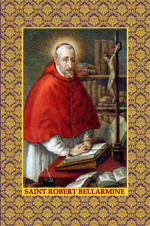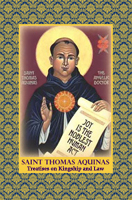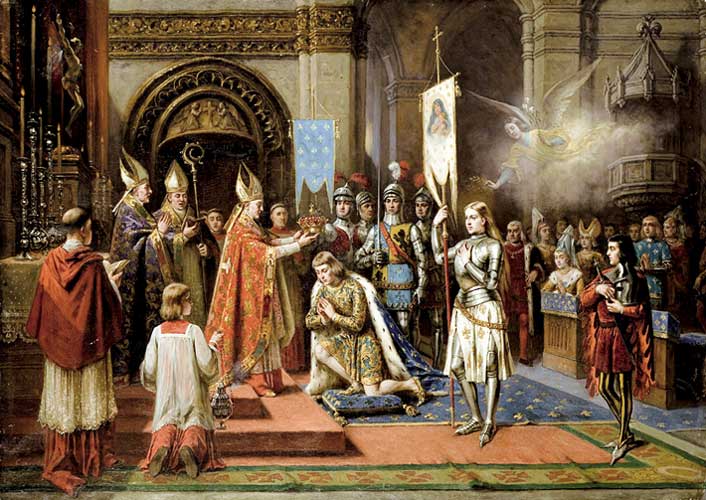Liberalism: Robbing the House of God in the Name of God
Intelligence Report
American Foundations #6
WHAT IS LIBERALISM? Previous Intelligence Reports have examined the philosophical roots of liberalism and its impact on American political foundations. The intent of this report is to provide a brief overview and summary with additional information to complement and round out our study before moving to finalize this series with a report on “Neoliberalism”.
Liberalism is a broad social, economic, political, and moral paradigm conceived as a radical social movement fermented in the minds of 18th century avant-garde political philosophers. Birthed in the French salons (pictured above), English ale houses, and Masonic lodges of Europe, Liberalism revolutionized human thinking about man and society, about economics and politics, and about church and state relations in opposition to one thousand years of Christian social-thinking, which it aimed at curtailing and gradually eliminating. Because the Protestant Reformation had enabled English monarchs to gain ascendancy over, and then control of, the church, it helped prepare the way for the conception and birth of liberalism in Great Britain from which it fund its way to the continent where it gave way to revolution.
Once Henry VIII (1534) issued the “Act of Royal Supremacy”[1], the English Crown moved to violently oppress dissenters followed by seizure of Church property and the torturous derogation of English common law that had protected the property rights of peasants for centuries. It was not long until the social function of private property insisted upon by the Church gave way to new liberal ideas about private property antithetical to the Gospels, to long-standing Catholic tradition and to the very nature of man made in the image of God. The liberal has their own ideas about property and about God, but before they could advance their ideas, the monarchs had to first solidify rule over both the temporal and spiritual realms. Subsequently, it was the state, with input from appointed clerics, that determined both what was dogmatic and what heretical, what was orthodox and what heterodox. In short, the state unleashed a cultural and religious kulturkampf against the Catholic faith in order to solidify its dominance over the political and economic affairs of the temporal order and over what it is that people must believe in the order of salvation as well.[2]
 The omnicompetent Reformation and post-Reformation state not only ransacked the Church, it also undertook a series of attacks on Christian common law[3] and private property stripping it from the convents and monasteries and placing it in the hands of acquiescing Protestant and Catholic land owners. Property rights were redefined by new statutory decrees in disregarded of Catholic common law that had for centuries protected the property claims of peasants (they could not be alienated from the land). It was just a matter of time until the new class of acquiescent landlord’s disregarded the ancient communal aspects of private ownership and thereafter forced helpless peasants off of their newly enclosed “private property” thereby initiating new forms of pauperism, propertyless wage labor and social disruption that has fluctuated, but remained constant, ever since.
The omnicompetent Reformation and post-Reformation state not only ransacked the Church, it also undertook a series of attacks on Christian common law[3] and private property stripping it from the convents and monasteries and placing it in the hands of acquiescing Protestant and Catholic land owners. Property rights were redefined by new statutory decrees in disregarded of Catholic common law that had for centuries protected the property claims of peasants (they could not be alienated from the land). It was just a matter of time until the new class of acquiescent landlord’s disregarded the ancient communal aspects of private ownership and thereafter forced helpless peasants off of their newly enclosed “private property” thereby initiating new forms of pauperism, propertyless wage labor and social disruption that has fluctuated, but remained constant, ever since.
 The absolutist state also extended its reach into commerce and interfered in the economy with the aim of shielding national commercial interests from competition by implementing a series of political acts resulting in broad scale regulation and the imposition of tariffs and trade restrictions known as “Mercantilism”. Mercantilism was intended to assure a positive trade balance but, due to the restrictions required to obtain such a balance, it led to international economic conflict among competing nations and the impetus for colonialism instead. The emergence of mercantilism (political interference in the economy to the detriment of global peace) and absolutism (total control of the state and political inference in religion to the detriment of moral disorder and civil peace) along with the rise of a new class of property-less paupers, Protestant Lords and soon to be liberal landowners, resulted in economic distress exacerbated by growing religious intolerance, which in turn led to social unrest that, taken together, fueled the flames of revolution that gave birth to a new world order, otherwise known as the “New Order of the Ages’ (Novus ordo seclorum) the goal of French “philsophes” and their American counterparts.
The absolutist state also extended its reach into commerce and interfered in the economy with the aim of shielding national commercial interests from competition by implementing a series of political acts resulting in broad scale regulation and the imposition of tariffs and trade restrictions known as “Mercantilism”. Mercantilism was intended to assure a positive trade balance but, due to the restrictions required to obtain such a balance, it led to international economic conflict among competing nations and the impetus for colonialism instead. The emergence of mercantilism (political interference in the economy to the detriment of global peace) and absolutism (total control of the state and political inference in religion to the detriment of moral disorder and civil peace) along with the rise of a new class of property-less paupers, Protestant Lords and soon to be liberal landowners, resulted in economic distress exacerbated by growing religious intolerance, which in turn led to social unrest that, taken together, fueled the flames of revolution that gave birth to a new world order, otherwise known as the “New Order of the Ages’ (Novus ordo seclorum) the goal of French “philsophes” and their American counterparts.
 The “New Order of the Ages” ushered in a prolonged period of social change whereby (1) the economic sphere was to be liberated from political control (mercantilism) resulting in free trade (2) private property was redefined and protected as an absolute and inviolable individual right[4] severed from previous common law requirements that gave ownership a communal dimension intended to protect the peasants who lived on the estates, (3) the churches, at least in America, were to be liberated from state dominance and privatized resulting in the gradual secularization of the public forum, and (4) the state was to be limited in its powers and subject to secular constitutional law deriving its authority from the people (popular sovereignty) rather than from the divine law rooted in God’s sovereignty as was the ancient common law of Christendom
The “New Order of the Ages” ushered in a prolonged period of social change whereby (1) the economic sphere was to be liberated from political control (mercantilism) resulting in free trade (2) private property was redefined and protected as an absolute and inviolable individual right[4] severed from previous common law requirements that gave ownership a communal dimension intended to protect the peasants who lived on the estates, (3) the churches, at least in America, were to be liberated from state dominance and privatized resulting in the gradual secularization of the public forum, and (4) the state was to be limited in its powers and subject to secular constitutional law deriving its authority from the people (popular sovereignty) rather than from the divine law rooted in God’s sovereignty as was the ancient common law of Christendom
The birth of secular constitutional law represented a radical break from the long established common law tradition of England. According to Dr. Michael P. Foley,
“The Christian pedigree of common law was clearly recognized by jurisprudence theorists like Sir William Blackstone, whose Commentaries on the Law of England was to exert an enormous influence on British and early American law. Indeed, in 1829 Joseph Story (American Supreme Court Justice, 1811-1845) could write, “There never has been a period in which the Common Law did not recognize Christianity as lying at its foundations.” (On a side note, the shift to a pure secularism that eventually did occur in the United States seems to be the result of Justice Oliver Wendell Holmes, who ridiculed the law’s relation to the divine and instituted a positivist approach based on judiciary opinion. The planks for Holmes’s rejection, however, had been laid a century earlier by Thomas Jefferson, who vigorously (but wrongly) denied that Christianity is or “ever was a part of the common law.”)[5]
If the absolutist state could become omni-competent and control the church thereby resulting in religious persecution, exacerbated by the institutionalization of mercantilism, and the un-mooring of law from its Christian common law roots resulting in property abuse and pauperism, if the absolutist state could do these things, if it could grow so autocratic and oppressive, it could also be used by revolutionary “Philosophes” and radicalized “Sons of Liberty” as a a valid excuse used to justify and to craft cunning arguments for the abolition of monarchy and for the removal of religion from the public forum thereby secularizing the state in the name of “freedom”. The whole thing was close enough in time to be associated with Medieval Catholicism on which all the abuses were blamed rather than on the break with Catholicism that gave rise to the abuses. In other words, mercantilism was presented as a Medieval idea as was absolutism, when in fact both mercantilism and absolutism were products of the Protestant Reformation, a rejection of Medieval solidarism.
This helps the reader to understand Karl Marx’s insistence that communism necessitated not one but two revolutions. First, the Catholic Aristocracy and Clergy had to be undone by a “Bourgeois Revolution” led by the nouveau riche middle class of Protestant merchants and financiers, which would open the way to liberalism also known as classical capitalism (at least the economic dimension). The revolutions in England and esp. France were thus bourgeois revolutions designed to eradicate the Catholic aristocracy; they were to be followed by a further “Proletariat Revolution” which would bring down the new class of Protestant capitalists. The latter however was a future event. During the interregnum liberal democracy and liberal capitalism were to become ascendant due to the cunning work of liberal philosophes scattered in Masonic lodges throughout Europe. It was a crafty solution whereby absolutism and mercantilism were blamed on Medieval culture despite the glaring facts of history for those adroit to master that subject. The attack on Medieval culture along with new ideas about economic, political, and individual freedoms, otherworldly known as liberalism, were all parts of a broad social program for a “New Order of the Ages”, which helps us to understand Jefferson’s specious assertion whereby he unsuccessfully denies the Christian origins of the common law.
Liberalism was therefore, an 18th century cry for liberty in response to the oppressive 16-17th century absolutist state, but it was more than this. In the guise of attacking the manifest and objectionable tenets of absolutism and mercantilism, liberalism was, and is, more than anything else, a desire to be free of the economic, moral, and political restraints associated with Christendom, a desire to be unburdened from the “shackles” of Aristotelian and Scholastic philosophy that provided the basis for an objective and universal moral order derived from reason. More importantly, liberalism represented a desire, on the part of a small cabal of Philosophes, deists, epicureans, theosophists and other anti-Christian humanists, to be “liberated” from Christian principles such as chastity and divine love, obedience and priestly authority and from such burdensome inhibitions as a spiritual check on morality and the just exercise of political authority. In short, liberalism seeks to be free of any revealed principles that inhibit freedom to do what one wants rather than what one should. Liberalism seeks to disconnect itself from any philosophical or theological restraint and to be governed by philosophical schools that derive their morality from the practical intellect severed from faith and speculative reason as discussed in previous Intelligence Reports 5 and 6. In America, the cause of liberal freedom was unwittingly facilitated, as it had been in England, by Protestant Reformers who so hated philosophy and reason and so exaggerated sacred scripture and the role of “faith alone” (unaided by reason, which Luther called the “Devil’s greatest whore”), that faith became objectionable to “reasonable” men who seized the opportunity to promote a new “Age of Reason”. For Luther, reason philosophy and speculative reason – not practical reason – (those unschooled in philosophy fail to make this distinction) were sex toys of the devil:
Reason is the Devil’s greatest whore; by nature and manner of being she is a noxious whore; she is a prostitute, the Devil’s appointed whore; whore eaten by scab and leprosy who ought to be trodden under foot and destroyed, she and her wisdom … Throw dung in her face to make her ugly. She is and she ought to be drowned in baptism… She would deserve, the wretch, to be banished to the filthiest place in the house, to the closets.” (Martin Luther, Erlangen v. 16, pgs. 142-148)
Given this early Protestant attitude toward reason, it is not surprising that men such as Thomas Paine, a liberal propagandist and a “Son of Liberty, who honored reason as a god thought such objections to be not only puerile but “torturous”.
“But there are times when men have serious thoughts, and it is at such times, when they begin to think, that they begin to doubt the truth of the Christian religion; and well they may, for it is too fanciful and too full of conjecture, inconsistency, improbability and irrationality, to afford consolation to the thoughtful man. His reason revolts against his creed. He sees that none of its articles are proved, or can be proved.”
l
“He may believe that Jesus was crucified, because many others were crucified, but who is to prove he was crucified for the sins of the world? This article has no evidence, not even in the New Testament; and if it had, where is the proof that the New Testament, in relating things neither probable nor provable, is to be believed as true?”
l
“When an article in a creed does not admit of proof nor of probability, the salvo is to call it revelation; but this is only putting one difficulty in the place of another, for it is as impossible to prove a thing to be revelation as it is to prove that Mary was gotten with child by the Holy Ghost.”
l
“Here it is that the religion of Deism is superior to the Christian Religion. It is free from all those invented and torturing articles that shock our reason or injure our humanity, and with which the Christian religion abounds. Its creed is pure, and sublimely simple. It believes in God, and there it rests” (Thomas Paine).[6]
The Christian faith is clear about the purpose of life and about sin. It protects freedom to pursue all that is beautiful, all that is noble and all that is true, it protects freedom of conscience and the right to live by and to publicly express the tenets of one’s faith. In short, it claims that freedom is given to know, to love, and to be united with the highest good which is the Holy Trinity. It does not place limits on religion, such as expressing one’s faith in public schools and universities (while simultaneously protecting the rights of deviant minorities to express theirs) as liberalism does. Instead, it places limits on the illicit use of freedom that rebels against restraint; it places limits on the explosion of the lower sentient passions that if left unchecked result in compulsive neurosis, chemical dependency, and other maladies that enslave in the name of freedom, such as liberalism.
The best way to promote liberalism then was to stealthily restrain Christianity and its corollary, the proper use of reason, rex ratio. This was accomplished not by fair intellectual debate with the scholastics et al, but by rebelling against absolutist tyranny (a tyranny that had nothing to do with Catholicism, in fact, it was itself a rebellion against Catholicism – Henry VIII) in the name of freedom under the sway of practical reason (common-sense only, common sense disconnected from ontology and metaphysics which are the domain of the speculative intellect). Practical reason un-moored from the moral precepts derived by the speculative intellect could be employed in any number of ways to support the ever-growing craze for “freedom”. To be sure, liberalism has its own moral guidelines, but these guidelines are rooted in a faulty understanding of human nature and of the human intellect. From the liberal perspective, the human mind is unable to obtain knowledge of spiritual nature of the human soul; therefore, the human soul does not exist:
“To talk of immaterial existences, is to talk of nothings. To say that the human soul, angels, God are immaterial is to say, they are nothings, or that there is no God, no angels, no soul. I cannot reason otherwise: … I believe I am supported in my creed of materialism by [John] Locke.”[7]
Basic adherents of liberalism reject classical metaphysics and Christian spirituality; however, the more adept theosophical branches of liberalism do accept the immorality of the soul and Gnostic forms of mysticism (that is another topic for is another time). Since liberals do not derive their knowledge of the soul from metaphysics, they must derive their knowledge of the soul from heretical schools of philosophy or from some faith perspective, any faith perspective, Hindu, American Indian, Sufi, Jewish mysticism, from any faith, even from certain Christian sects. Some liberals, like Thomas Jefferson, following in the line of Epicurus, were professed materialists who believed in the existence of the soul but reduced it to some type of material existence, something akin to what New Agers refer to as “ether”, a rarefied and ethereal type of matter that, like helium, is so light and bereft of density as to be almost celestial.
Although many founders possessed metaphysical insight, it was derived from some faith perspective or from some philosophical system such as neo-Platonism. Nonetheless, as far as Aristotle and Christian scholastic philosophy go, most founders rejected this type of metaphysics as unreasonable. However, the leading lights among them (Washington, Jefferson, Adams, Franklin, Paine et al) did accept the branch of moral philosophy known as ethics. Like the Roman philosophers before them, the American founders preferred applied or practical thinking. Since the study of ethics is reasonable and capable of being grasped (in part) by the “practical intellect” it was widely accepted. The problem is that applied thinking infers that some intellectual, concept is being applied, like a theory or some speculative truths discovered by the higher rational mind. Since the Framers, in general, denied the possibility of grasping higher spiritual truths through the operation of the higher intellect (metaphysics), their ethical applications were based on nothing but unsupported beliefs, tenets held on the authority of long rejected philosophical mystery cults, or on common sense operations that seemed to indicate that human beings are self-interested and therefore depraved animals.
Most leading American founders were ready to accept either esoteric knowledge or knowledge derived from common sense or both. Since the former (esoteric) is not well documented, except by inference, it is best to focus on the latter, viz., common sense of the practical intellect. Since the practical intellect rejects metaphysics derived from reason, it chooses to focus on practical reality as sensed in the world around it, common sense. Anything that cannot be grasped by the practical intellect is rejected as unreasonable; if it cannot be empirically verified it must therefore be rejected. Therefore, articles of belief, such as the mysteries of the Christian faith, were rejected as unreasonable. As a result, belief in such things as the resurrection, incarnation, the Holy Trinity, and the way of the cross, were booted out of the broad public domain and into the constrained private domain where they could do little harm but much good.
Belief in such silly things as the Holy Trinity and the parables of Jesus can do much good because they carry with them a reasonable moral code that, according to the tenets of liberalism, wise men adopt from their study of (secular) philosophy disconnected from both Catholicism and Protestantism, but appearing in the guise of both . Everyone else, that is those who do not have the intellectual wherewithal to derive wisdom form the study of pagan philosophy, either lack a moral code and are therefore a danger to society, or are left to garner their morality from the Christian faith or some other faith perspective graced with a moral code. Since morality is necessary for communal existence, liberals like Jefferson et al considered it better for the masses to derive a moral code from a faith perspective than to not have none at all. Morality is the bottom line. For a classical liberal, the impartation of a moral code is the sole purpose and essence of religion, all the rest such as the parables, miracles, the resurrection from the dead etc. are fairy tales and fables for uneducated, ignorant, and foolish people who are in need of moral guidance but unable to use their minds to acquire it; so they are forced to get their morals from faith.
“The Christian god is a three headed monster; cruel vengeful and capricious… One only needs to look at the caliber of people who say they serve him. They are always of two classes: fools and hypocrites” (Thomas Jefferson).
l
“As I understand the Christian religion, it was, and is, a revelation. But how has it happened that millions of fables, tales, legends, have been blended with both Jewish and Christian revelation that have made them the most bloody religion that ever existed” (John Adams).[8]
Liberals elevate reason above faith, and thus have faith in nothing but that which is reasonable:
“Man once surrendering his reason, has no remaining guard against absurdities the most monstrous, and like a ship without rudder, is the sport of every wind. With such persons, gullibility, which they call faith, takes the helm from the hand of reason and the mind becomes a wreck” (Thomas Jefferson). [9]
The Christian faith is not reasonable and therefore assigned a place among the foolish and the gullible. According to Voltaire, one of the grand patriarchs of Anti-christian liberalism
“The Bible. That is what fools have written, what imbeciles commend, what rogues teach and young children are made to learn by heart” *
According to Framers like Jefferson, faith is for the intellectually immature, the church is full of impostors, chief among them being the apostles and St. Paul who added the stories, fables, and myths to sacred scripture in order to dupe the ignorant:
“Among the sayings and discourses imputed to [Jesus] by His biographers, I find many passages of fine imagination, correct morality, and of the most lovely benevolence; and others, again, of so much ignorance, so much absurdity, so much untruth, charlatanism and imposture, as to pronounce it impossible that such contradictions should have proceeded from the same Being. I separate, therefore, the gold from the dross; restore to Him the former, and leave the latter to the stupidity of some, and roguery of others of His disciples. Of this band of dupes and impostors, Paul was the great . . . corruptor of the doctrines of Jesus” (Thomas Jefferson).
In assigning the Christian faith and the wisdom of the cross a place among gullible and the foolish (and assigning the place of wisdom to those who use their reason to reject faith and then to proceed in pursuit of happiness according to the light of their own intellect) such men convict themselves of the very foolishness that they despise.
“For the word of the cross, to them indeed that perish, is foolishness; but to them that are saved, that is, to us, it is the power of God. For it is written: I will destroy the wisdom of the wise, and the prudence of the prudent I will reject…Hath not God made foolish the wisdom of this world? …For both the Jews require signs, and the Greeks seek after wisdom: But we preach Christ crucified, unto the Jews indeed a stumbling block, and unto the Gentiles foolishness: But unto them that are called, both Jews and Greeks, Christ the power of God, and the wisdom of God” (1 Corinthians 1: 18-24).
Since liberalism rejects the Christian faith and metaphysics, liberal moral guidelines are not derived from revelation or from speculative reason by means of a metaphysical analysis of human nature (body and soul) followed by further analysis of virtue culminating in wisdom and love. Liberal moral guidelines are acquired solely by practical reason from (1) pagan-philosophy (esoteric or materialistic) (2) an observation and analysis of everyday human conduct (under the sway of passions), what political scientists, beginning with Machiavelli, refer to as realpolitik, and from (3) a misunderstood principle of “self-interest”. They misunderstand self interest because they misunderstand the “self”. Knowledge of the self, of the human person is derived from metaphysics, which liberals, philosophes, materialists and even Gnostics (when more fully understood) despise – Gnostics speak a lot about metaphysics, but their idea of what it is is rooted in pagan cosmology far removed from the thought of Aquinas and Aristotle.
Summary
In its desire to be free of economic, moral, and political restraints, liberalism favors (a) limited government, (b) unregulated free trade, (c) economic life unburdened by Christian moral principles, (d) the privatization of religion, and (e) the resultant secularization of public and communal life, under the direction of secular human law alienated from divine law. Liberalism can thus be summed up in one code word: “liberty”, which is part of larger slogan; “liberty, equality, and fraternity”, the 18th century revolutionary banner of the French avante garde for a New Order of the Ages instituted by secular revolutions in France, America and throughout the world.
Classical liberalism is therefore more than an economic theory; it is a comprehensive Antichristian theory for secular political, economic, and social or moral upheaval euphemistically referred to as “development”. It stands on three economic, political, and moral pillars that form one cohesive political ideology.
Economic liberalism promotes unrestricted use of private property, unregulated free markets, and free trade. Economic liberalism was aided by its being juxtaposed to the nostrum known as mercantilism.
Political liberalism favors limited government that protects individual rights, guarantees freedom to pursue one’s interests (without adequately defining what self-interest is), exaggerates and incompletely, and thus falsely, defines the concept of private property[10], and introduces democratic forms of mixed government without duly considering the Christian origins of law or properly educating citizens for the exercise of political power. Political liberalism was facilitated by being juxtaposed to the anti-Catholic nostrum known as absolutism.
Moral Liberalism favors laws derived from practical reason divorced from faith and speculative reason. By avoiding speculative reason, moral liberalism avoids that branch of philosophy that gives us knowledge of the human soul, which is necessary to derive knowledge of human spiritual potentials. Liberalism is thus rooted in a limited definition of human nature that reduces self-interest to a pleasure pain calculus of the practical intellect aided by limited observations of corrupt human behavior. Liberalism is therefore unable to correctly talk about human moral ends because it does not know what a human being is. Because it lacks a metaphysical foundation, liberalism is adverse to the spiritual development inherent in human nature, to theology and to revelation, which are welcomed by the student of classical metaphysics.
Liberalism thus was a war waged against Christianity under the banner of freedom from economic, political tyranny that had nothing to do with Christianity. It was on these two coattails of anti-mercantilism and anti-absolutism that anti-Christian moral liberty found its way into the modern world under the guise of reason divorced from faith, that is, the God of Nature prominent in American colonial writings.
In summary, the growth of liberalism was greatly aided by juxtaposing free trade to the economic nostrum of mercantilism, by further juxtaposing democracy, to the political nostrum of absolutism, and by stripping metaphysics from theology thereby leaving a religion of reason.
By juxtaposing “enlightened” liberal ideas about free trade, limited government, and morality rooted in science and “practical reason”, by juxtaposing ideas such as these to objectionable quackery like “absolutism” and “mercantilism”, and by successfully associating these things with medieval “Christian quackery that had to be discarded”, liberalism was able to succeed in its attempts to promote the rejection of medievalism, and along with it the burial of Catholic ideas necessary for moral and spiritual renewal of the social order. It was not Catholicism that caused absolutism and Mercantilism; these were both anti-Catholic social and political movements strenuously opposed by the Church.[11]
In the process of opposing mercantilism and religious and political absolutism, liberals successfully facilitated deregulation of the economy (thereby permitting the widespread growth of immoral financial transactions associated with capitalism) and the objectionable privatization of religion. The latter was facilitated and brought about by the evils of absolutism and the objectionable control of the churches by tyrants, which provided the liberals with a much needed argument justifying religious freedom and the separation of church and state. Interestingly, the tyranny and absolutism that facilitated the separation was blamed on the Catholics, when in reality, the Pilgrims fled England from Protestant tyranny, the same Protestant tyranny that was making martyrs of the Catholics. The end result is a secular political order steeped in moral relativity, which is detrimental to both Protestants and Catholics alike. They have much more in common with each other than either does with the secular regime that dominates the public forum.
All together, liberalism resulted in the privatization of religion, the secularization of the public forum, an incorrect exaggeration of the right to private property (leading to pauperism and wage labor rather than a flourishing class of yeoman farmers and craftsmen), the separation of ethics (that is, ethics rooted in human nature and open to theology) from economics and politics, and the reduction of morality to self-interest and utility all ratified by the democratic principle of majority rule and a deficient understanding of the natural law, which have brought us to where we are today.
__________________________________________
ENDNOTES
[1] Similar trends occurred in France as the Philosophes established absolute rule over the Catholic Church by implementing the “Civil Constitution of the Clergy” (1790). Similarly, in Switzerland, the state exercised authority to enforce the reforms implemented by John Calvin. Although in both cases the rule was exercised by civil officers rather than by kings, the effect was similar.
[2] Martin Luther denied any limitation of political power either by Pope or people, nor can it be said that he showed any sympathy for representative institutions; he upheld the inalienable and divine authority of kings in order to hew down the Upas tree of Rome. There had been elaborated at this time a theory of unlimited jurisdiction of the crown and of non-resistance upon any pretense (Cambridge Modern History, Vol III, p. 739).
[3] The Ancient Laws and Institutes of England “. Instituted by King Alfred the Great. Their profound religious spirit clearly appears from the fact that the “Code of Law” began with the Ten Commandments, followed by many of the Mosaic Precepts, added to which is the express solemn sanction given to them by Christ in the Gospel: “Do not think that I am come to destroy the law, or the prophets; I am not come to destroy but to fulfill.” After quoting the canons of the Apostolic Council at Jerusalem, Alfred refers to the Divine commandment, “As ye would that men should do to you, do ye also to them”, and then declares, “From this one doom, a man may remember that he judge every on righteously, he need heed no other doom-book.” Paraphrased from Catholic Encyclopedia (http://www.newadvent.org/cathen/09068a.htm).
“According to the celebrated former British Statesman and Historian Sir Winston Churchill, the roots of King Alfred’s Book of Laws or Dooms came forth from the (long-established) laws of Kent, Mercia and Wessex. All these attempted to blend the Mosaic Code with the Christian principles of Ceito-Brythonic Law and old Germanic customs.”
“Churchill adds that the laws of Alfred, continually amplified by his successors, grew into that body of Customary Law which was administered as (the Common Law) by the Shire and the Hundred Courts (as specified in) Exodus 18:21. That, under the name of the ‘Laws of St. Edward (A.D. 1042) the last Anglo-Saxon Christian King of England – the Norman kings undertook to respect, after their 1066 invasion and conquest of England and hegemony over Britain. Out of that, with much dexterity by feudal lawyers, the common law emerged (which was re-confirmed by Magna Carta 1215). Quoted from: “KING ALFRED THE GREAT AND OUR COMMON LAW” Prof. Dr. F.N. Lee (http://www.ensignmessage.com/kingalfredthegreat.html)
[4] So that what happened to the Catholic peasants would not happen to the new landlords.
[5] Dr. Michael P. Foley, “The Catholic Contribution to Western Law” https://www.catholicculture.org/culture/library/view.cfm?recnum=11113
[6] “Of The Religion of Deism Compared With the Christian Religion”
[7] Thomas Jefferson letter to John Adams, August 15, 1820.
[8] Letter to F.A. Van der Kamp (1816)
[9] Letter to James Smith (1822)
[10] Liberal advocates of private property rightly claim that “private property” is rooted in the natural law. Unfortunately, they have a limited conception of human nature and how exactly natural law is rooted in that nature. (For a detailed study of the communal dimensions of human nature, refer to Chapters 5 through 9 of “Trinitarian Humanism”, Marzak, 2015, http://kolbefoundation.org/).
[11] Fortunately, good ideas do not go away and the truth cannot remain suppressed forever (1 Timothy 5:25). Catholic social teaching has been called, “the best kept secret of the Catholic Church.” This well guarded secret is now getting a voice and is beginning to spread around the globe.


